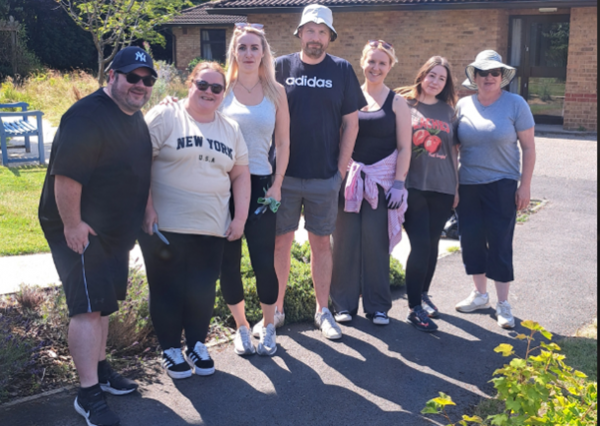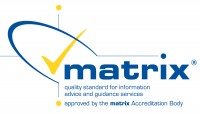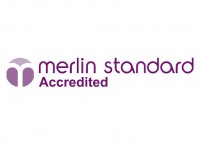The need to identify, measure and nurture the development of soft skills in the modern workplace comes into sharp focus in the context of social recruitment.
The quality of interpersonal communication is both the most valuable and the most challenging frontier in the modern workplace, for reasons this article will explore.
Pre-employment, navigating the job market requires a host of soft skills on the part of the candidate. Resilience, initiative, flexibility, adaptability, communication, critical thinking – skills that can be hard to access in the context of a job search even for those familiar with the process.
The presence of all these skills, and more, are critical considerations in shaping a healthy organisational culture that can attract, retain, and develop a diverse workforce. Making sure these skills are present in the right balance across technical skillsets, divisions and structural layers is tough at the best of times.
The stakes are even higher for employees who faced barriers to securing their employment. For these individuals, starting the job is just as daunting as securing it – possibly even more so. Imagine the potential struggle for someone who has been unemployed for a period due to circumstances they may not want to discuss, who finds there is a ‘sink or swim’ approach to emotional intelligence in the organisation they join. Just one way to consider how without the foundation of soft skill development in an organisation, the long-term success of employees may be very difficult to achieve.
To stimulate discussion, this piece will explore the integral role soft skills play in fostering a culture of continuous learning, enhancing employability, and driving sustainable employment in a climate of constant change.
Why Soft Skills Matter More Than Ever
As we transition towards a knowledge economy characterised by automation and artificial intelligence, the essence of human-centric skills has taken centre stage. There is growing evidence that soft skills strengths are a precursor to leadership potential and high performance – making them critical selection criteria for employers seeking to establish an edge in the market. That candidates entering the workforce from social recruitment pathways potentially don’t find their soft skills easy to articulate or evidence shouldn’t become another unintended consequence of this rapidly developing field.
Where technical skills provide the 'what' of a job, soft skills offer the 'how.' They facilitate collaboration, innovation, and abilities required to manage the human component of work; facets robots cannot replicate. They are the invisible threads that weave together the fabric of a successful, sustainable career path for the individual.
Enabling the Shift in Priorities
Human Resources (HR) departments are on the frontline of this shift. They are not only seeing a change in the calibre of candidates sought by organisations but are equally witnessing a transformation in the performance metrics used to appraise staff.
Employee evaluation frameworks are increasingly making space for assessing and rewarding soft skills – integrating compelling evidence that links high levels of emotional intelligence, adaptability, and resilience to superior job performance and career progression.
HR managers are pivoting to a more holistic approach to talent acquisition, recognising the intricate interplay of soft skills and technical competencies. Upskilling programs are being re-engineered to provide a balanced curriculum that nurtures a range of proficiencies, shaping well-rounded professionals who are not only adept at their jobs but also excel in interpersonal arenas.
A Revolution in Training
Training and Development (T&D) budgets are reflective of this transformation. Companies are now spending more on resources that shape the soft skills of their employees. This shift is partly in response to the evolving demands of work structures. Enterprises are no longer rigidly hierarchical but are adopting flatter organisational models, characterised by matrix-based team structures and cross-functional roles, necessitating a different set of collaborative and influential capabilities.
The nature of this training is also undergoing a metamorphosis, becoming increasingly personalised and experiential. Employees are now being offered a wide array of learning models—from virtual classroom environments to mentoring programs—that allow them to learn, apply, and internalise soft skills in a more organic, autonomous, and personal manner.
The Invisible Advantage
Cultivating soft skills proffers employees with an invisible advantage in a competitive job market. These abilities set the tone for a productive and positive working environment, where employees can effectively manage and communicate with colleagues, clients, and stakeholders.
This translates to a better organisational culture, where individuals are more engaged, exhibit enhanced job satisfaction, and are less likely to succumb to workplace stressors. The culmination is a sustainable, high-performing workforce where turnover is reduced, and core competencies are continually enriched.
Bridging the Perception Gap
There exists a pervasive perception gap where employees may understate the significance of their soft skill development. It is often the case that these capabilities are undervalued or considered secondary to more tangible credentials.
However, initiatives that highlight the importance of soft skills are crucial. These might include internal communication campaigns, showcasing success stories where strong soft skills have led to career victories, and integrating soft skill learning throughout the organisational structure, from onboarding to continuous professional development.
Overcoming Barriers to Soft Skills Development
Despite its evident importance, the embedding of soft skills in the DNA of a workplace faces its challenges. The nebulous nature of soft skills, their subjective assessment, and the need for long-term investment can often lead to them being sidelined in favour of more immediate and tangible business outcomes.
Organisations must overcome these barriers by engaging in a multi-faceted approach. This could involve tasking leaders with the responsibility of modelling and championing desired soft skills, creating robust assessment criterion for soft skills development, or even leveraging technology to deliver and monitor soft skills training.
Nurturing the Eco-System
The onus does not fall solely on organisations; the larger societal eco-system must also contribute to the nurturing of soft skills. Educational institutions, for their part, should design curricula that are not just focused on the imparting of technical knowledge but are also imbued with opportunities to develop a wide range of soft skills.
In addition to that, initiatives led by the government, professional bodies, and non-profit organisations can play a pivotal role in creating an environment where soft skills can be developed and recognised – such as employability programmes that increasingly include elements of soft skills development support.
Fostering Lifelong Learning
Lifelong learning is no longer an option but a requisite in a world that is continually reshaped by technological advancements and global forces. Soft skills can evolve organically with the right support, making them future-resistant and able to transcend job roles and industries.
Fostering a culture of continuous learning, where the acquisition of new soft skills is an everyday activity achievable by all, regardless of role, is a corporate investment that will reap rich dividends. It is a statement about the long-term value of the employability and success of any workforce, demonstrating real commitment. As with all individual actions when building social value – these choices should be celebrated for their capacity to contribute to the sustainability of employment for all.
Conclusion
In conclusion, the valorisation of soft skills is not a trend but a crucial pivot in the redefinition of the employability paradigm. Organisations that recognise and act on this transition stand to gain the most, nurturing a workforce that is not only technically competent but emotionally and relationally astute. Soft skills are the bedrock upon which long-term employment sustainability is built, providing individuals with a repertoire of abilities that allow them to flourish in a rapidly changing employment landscape.
The AI-infused workplaces of the future might automate tasks, but they will greatly value and rely upon the uniquely human attributes encompassed by soft skills.
Combine these skills with the life experience of a more diverse range of employees introduced by social recruitment, supported by a culture that cares about individual fulfilment and the rewards of good work – that is a reality worth striving for.
It's time we all take steps to ensure we're adequately equipped for this future, where sustainable employment will belong to those who cannot only 'do' but can 'be’ appreciated as their authentic selves.
Some questions to consider
The unpredictability of market workforce demand has created an urgency around blending soft skill understanding, assessment and measurement with evidence of technical capacity and sector specific experience and qualifications. This rapid convergence of soft skill and ‘emotional intelligence’ with empirical evidence in recruitment and sustainment has made us wonder – would it help engage teams in discussion of what matters most? Does an open discussion of the merits of each set of capacities and their measurement reveal something about development culture, training opportunities and confidence in an organisation?
We know the pursuit of sustainable employment outcomes isn't solely dependent on the mastery of technical skills or academic qualifications. Knowing this doesn’t make tackling it any easier when recruiting at scale. Does this emerging imperative need a common language that better describes the objective value of 'soft skills' - perhaps with a new name that establishes them as a family of attributes not framed as ‘other’ to traditional core competencies such as technical capacity and qualifications gained?
And when recruiting people with barriers to employment, how can soft skills assessment be incorporated into the process, without adding additional pressure for those already cognitively stretched by potentially multiple stressors? Is this where training the recruiter becomes the deciding factor, rather than putting the onus on candidate performance?
We’ve love to generate conversations on how you are approaching the integration of this theme into your organisation’s planning and values – please do bring it up with your account manager!











